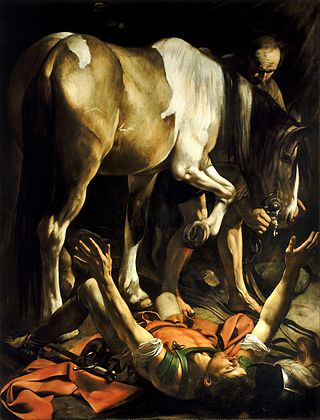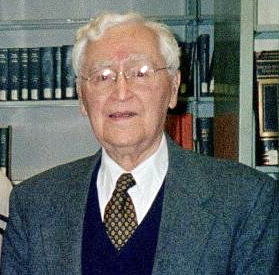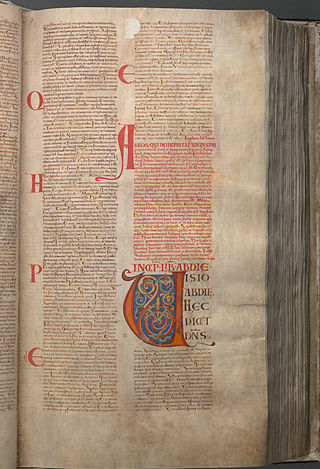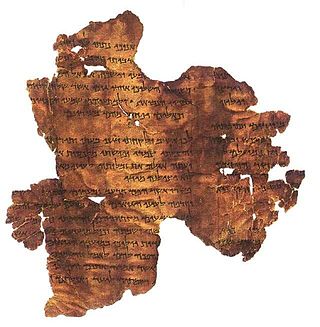
The Hebrew term Abaddon, and its Greek equivalent Apollyon appear in the Bible as both a place of destruction and an angel of the abyss. In the Hebrew Bible, abaddon is used with reference to a bottomless pit, often appearing alongside the place Sheol, meaning the resting place of dead peoples.

The Book of Joel is collected as one of the twelve minor prophets of the Nevi'im ("Prophets") in the Hebrew Bible, and as a book in its own right in the Christian Old Testament.

The oldest surviving Hebrew Bible manuscripts—including the Dead Sea Scrolls—date to about the 2nd century BCE (fragmentary) and some are stored at the Shrine of the Book in Jerusalem. The oldest extant complete text survives in a Greek translation called the Septuagint, dating to the 4th century CE. The oldest extant manuscripts of the vocalized Masoretic Text, date to the 9th century CE. With the exception of a few biblical sections in the Prophets, virtually no biblical text is contemporaneous with the events it describes.

The Pauline epistles, also known as Epistles of Paul or Letters of Paul, are the thirteen books of the New Testament attributed to Paul the Apostle, although the authorship of some is in dispute. Among these epistles are some of the earliest extant Christian documents. They provide an insight into the beliefs and controversies of early Christianity. As part of the canon of the New Testament, they are foundational texts for both Christian theology and ethics.
Walter Brueggemann is an American Protestant Old Testament scholar and theologian who is widely considered one of the most influential Old Testament scholars of the last several decades. His work often focuses on the Hebrew prophetic tradition and sociopolitical imagination of the Church. He argues that the Church must provide a counter-narrative to the dominant forces of consumerism, militarism, and nationalism.

Bruce Manning Metzger was an American biblical scholar, Bible translator and textual critic who was a longtime professor at Princeton Theological Seminary and Bible editor who served on the board of the American Bible Society and United Bible Societies. He was a scholar of Greek, New Testament, and New Testament textual criticism, and wrote prolifically on these subjects. Metzger was one of the most influential New Testament scholars of the 20th century. He was elected to the American Philosophical Society in 1986.
Walter C. Kaiser Jr. is an American Evangelical Old Testament scholar, writer, public speaker, and educator. Kaiser is the Colman M. Mockler distinguished Professor of Old Testament and former President of Gordon-Conwell Theological Seminary in South Hamilton, Massachusetts, retired June 30, 2006. He was succeeded by James Emery White.
David L. Petersen is the Franklin Nutting Parker Professor of Old Testament in the Candler School of Theology at Emory University. He is also an ordained Presbyterian minister.

Allen Paul Wikgren was an American New Testament scholar and professor at the University of Chicago. His work centered on the text of the New Testament and New Testament manuscripts, but also included Hellenistic and biblical Greek, the deuterocanonical books (apocrypha), early Jewish literature, and work on the Revised Standard Version English translation of the Bible.
Pheme Perkins is a Professor of Theology at Boston College, where she has been teaching since 1972. She is a nationally recognized expert on the Greco-Roman cultural setting of early Christianity, as well as the Pauline Epistles and Gnosticism.
Louis Stulman is Professor of Religious Studies and Chair of the Religious Studies and Philosophy Department at the University of Findlay, Findlay, Ohio. He earned the M.Phil. and Ph.D. in Hebrew Bible from Drew University and has done post-doctoral work at the University of Michigan. He has served as an instructor in Hebrew at Drew University, the Gale and Harriette Ritz Professor of Old Testament at Winebrenner Theological Seminary, as well as the positions noted above at The University of Findlay. Stulman’s awards for teaching include the “Outstanding Educator, the “Founder’s Academic Excellence Award for Faculty,” and "Excellence in Education."
Choon-Leong Seow, known as C. L. Seow, is a distinguished biblical scholar, semitist, epigrapher, and historian of Near Eastern religion, currently as Vanderbilt, Buffington, Cupples Chair in Divinity and Distinguished Professor of Hebrew Bible at Vanderbilt University. An expert in wisdom literature, Seow has written widely in the field of biblical studies.
Kathleen M. O'Connor is an American Old Testament scholar and the William Marcellus McPheeters Professor Emerita of Old Testament at Columbia Theological Seminary. She is widely known for her work in relating trauma and disaster, as well as present-day intercultural and ecumenical issues for biblical studies.
Isaiah 47 is the forty-seventh chapter of the Book of Isaiah in the Hebrew Bible or the Old Testament of the Christian Bible. This book contains the prophecies attributed to the prophet Isaiah, and is a part of the Books of the Prophets. Isaiah 40-55 is known as "Deutero-Isaiah" and dates from the time of the Israelites' exile in Babylon. Chapter 47 concerns the fall of Babylon, which is personified as a woman, "the virgin daughter of Babylon", "daughter of the Chaldeans", no longer to be called "the Lady of Kingdoms" or "a Lady for ever".

Micah 3 is the third chapter of the Book of Micah in the Hebrew Bible or the Old Testament of the Christian Bible. This book contains the prophecies attributed to the prophet Micah, and is a part of the Book of the Twelve Minor Prophets.

Amos 7 is the seventh chapter of the Book of Amos in the Hebrew Bible or the Old Testament of the Christian Bible. This book contains the prophecies attributed to the prophet Amos; in particular, the seventh, eighth, and ninth chapters contain visions and their explanations. It is a part of the Book of the Twelve Minor Prophets.

Hosea 4 is the fourth chapter of the Book of Hosea in the Hebrew Bible or the Old Testament of the Christian Bible. This book contains the prophecies attributed to the prophet Hosea son of Beeri. In this chapter he reproves the people and priests for their sins in the interregnum following Jeroboam's death; hence there is no mention of the king or his family; and in Hosea 4:2 bloodshed and other evils usual in a civil war are specified. It is a part of the Book of the Twelve Minor Prophets.

Hosea 7 is the seventh chapter of the Book of Hosea in the Hebrew Bible or the Old Testament of the Christian Bible. The book contains the prophecies attributed the prophet Hosea son of Beeri and this chapter is about Israel reproved for multiple sins resulting in God's wrath against them for their hypocrisy. It is a part of the Book of the Twelve Minor Prophets.

Hosea 9 is the ninth chapter of the Book of Hosea in the Hebrew Bible or the Old Testament of the Christian Bible. This chapter contains the prophecies attributed to the prophet Hosea son of Beeri, about the distress and captivity of Israel for their sins, especially their idolatry. It is a part of the Book of the Twelve Minor Prophets.

Ezekiel 6 is the sixth chapter of the Book of Ezekiel in the Hebrew Bible or the Old Testament of the Christian Bible. This book contains the prophecies attributed to the prophet/priest Ezekiel, and is one of the Books of the Prophets. The high places in the mountains of Israel, "the seats of her idolatry", are the focus of Ezekiel's prophecies in this chapter.








